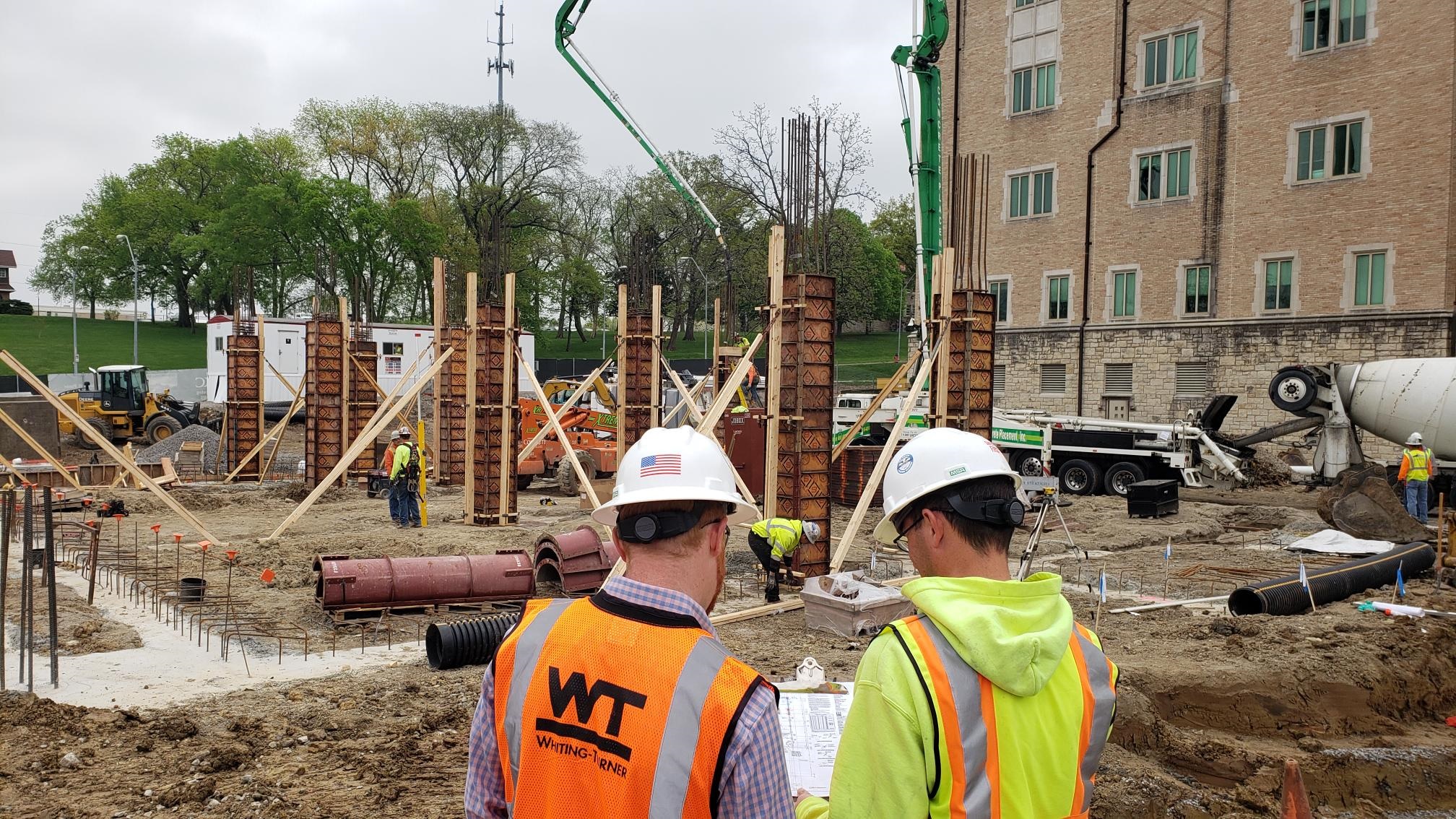
Communication from Beginning to End
The moment that ground is broken on a new construction site, conversations should begin between special inspections (SI) teams and the contractors, superintendents and building owners. With project timelines getting shorter and shorter, it’s imperative that these conversations remain as fluid and transparent as possible to avoid the kind of setbacks that can seriously jeopardize a project’s schedule.
Special inspections field representatives visit job sites, watch construction as it occurs, perform required field tests, and check what is done against the project documents. At Geotechnology, our field representatives are trained to first contact the general contractor’s superintendent and respective subcontractor(s) to discuss what component of the construction they will be observing and testing. When our field technicians complete their scheduled tasks, their last contact will again be with the superintendent and subcontractor(s) to discuss the results of their tests and observations and outline any discrepancies noted. Finally, special inspections teams will fill out a Daily Field Report, and it is at this point that communication gaps can occur which may seem small, but can grow over time into something that might seriously threaten a construction project schedule.
The extra step makes a world of difference
Here in the electronic age, Daily Field Reports are composed and delivered by email. While some special inspections teams will consider their job done the moment they hit “send,” Geotechnology has seen time and time again how important it is to go the extra step and be proactive about our communication. We understand that with busy schedules and constant emails, it is easy to let Daily Field Reports and the periodic Summary Reports slip through the cracks or be glossed over.
That is why we make sure to regularly follow up with contractors about ongoing discrepancies, and most importantly, immediately notify those directly involved with any time-sensitive issue. This diligence carries over to lab tests as well. If, for instance, we conduct a concrete compressive strength test and find a potential problem or weakness, we will not simply include the test result buried in the daily project emails, we will immediately notify those most directly involved with that stage of the construction. Put simply, when an issue is discovered, we make sure that the right people know the right things right away. Otherwise, teams may labor for days or even weeks before discovering in a periodic Summary Report that they need to go back and fix something.
At the end of the project, in order to write a final inspections report and for the City, County, or other governing agency to issue an occupancy permit, all of the discrepancies have to have been resolved. If your special inspections team has been proactive, there shouldn’t be any surprises or hold-ups. If your special inspections team has simply been “doing their job” without personally investing themselves in the project’s success, there’s no telling how many issues might pop up and prevent the issuing of an occupancy permit, or worse, cause structures to experience premature failures or damage in the future. The next time you are choosing a special inspections team, make sure to do your own inspection into how they communicate and what their standards are. It might make all the difference.
Our Construction Materials Testing Managers are: Matt Barker, Erlanger, KY; Jacob Walker, Lexington, KY; Kevin Weaver, Cincinnati & Dayton, OH; Steve Damron, Overland Park, KS; Luke Heuerman, St. Louis, MO and Fairview Heights, IL; and Justin Donovan for Memphis, TN, Jonesboro, AR and Oxford, MS.
Learn more about our special inspections and construction materials testing services by visiting our website!
